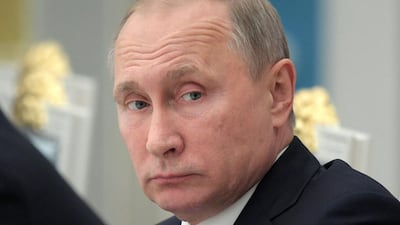Did Ho Chi Minh’s meddling in the 1968 US election result in Richard Nixon’s presidency? The Vietnamese communist leader did, after all, launch his Tet Offensive six weeks before the New Hampshire primary, filling America’s TV screens with images of a coordinated assault on US forces. While that campaign burnt through much of the communists’ combat infrastructure and required years of rebuilding, it did convince millions of Americans that the war was unwinnable – prompting president Lyndon B Johnson to suddenly withdraw from the race, plunging the Democratic Party into chaos.
Whether or not electing Nixon was its intention, the Tet Offensive clearly had an effect on the race. But the reason Nixon won was the success of his “southern strategy” of racially-coded appeals to white voters.
That’s worth remembering amid the efforts by Bill and Hillary Clinton and the Democratic Party establishment to blame Donald Trump’s victory on Russian hackers stealing and disseminating thousands of damaging emails.
Blaming Vladimir Putin for electing Mr Trump may be emotionally satisfying, but it’s a perilous evasion of the political challenge to the Democratic Party posed by its 2016 setback.
If the key lesson taken by Democrats from Mr Trump’s win is the need for better cybersecurity, they are dooming themselves to more years in the wilderness. The hackers, remember, are not thus far being accused of interfering with the casting or counting of ballots, they’re accused of publishing damaging emails whose authenticity has not been questioned. So, not a “disruption” of the election as much as an attempt to influence voters.
Russia certainly had strong strategic motivations to see Mrs Clinton defeated. Mr Putin’s foreign policy is organised around rolling back the strategic reversals suffered by Moscow in the decade following the collapse of the USSR. Mr Trump is the perfect president for any foreign power seeking to further diminish US strategic influence and to raise doubts among traditional US allies about Washington’s commitment to their security.
So, Moscow had a stake in the US election outcome, as do most governments in the international system. None of this in any way justifies a Russian hack, which certainly merits the fullest investigation and appropriate response. But what remains clear is that if the hacked emails had any significant effect at all, it was by relying on the flawed workings of American democracy.
The salient fact that settled the 2016 election for Mr Trump in key states that the Clinton campaign had assumed were in the bag was that many tens of thousands of voters who had turned out for Barack Obama in 2008 and 2012 either voted for Mr Trump or stayed home.
Analysts are parsing the numbers and debating the combination of class, race and gender issues that influenced those voters, but the contents of those hacked emails don’t figure highly as a causal factor. The real story here is a profound breakdown in US democracy that has been years in the making.
Three decades of bipartisan plutocracy has overseen profound changes in the US economy that have brought disproportionate rewards to billionaires while destroying millions of livelihoods. Mr Trump recognised their pain and exploited it.
It’s worth noting, for example, that the fewer than 500 counties won by Mrs Clinton produce 64 per cent of the nation’s GDP, compared with just 36 per cent produced in the 2,600 counties won by Mr Trump. His rhetoric channelled the rage of working class voters to build a winning electoral majority.
Of course he offers no solutions to the causes he championed – he may have bashed Goldman Sachs on the campaign trail, but just like his four predecessors, he’s tapped alumni of that Wall Street firm to make his economic policy. It may have been a cynical ploy, but Mr Trump positioned himself as the saviour of voters for whom Mrs Clinton’s message that “America is great” sounded like Marie Antoinette.
Remember, back in the early 1960s it suited Moscow’s propaganda ends to troll Washington over racist violence: Soviet foreign-language media focused constantly on the harsh state response to America’s civil rights protests. But as much as FBI director J Edgar Hoover sought to portray Dr Martin Luther King Jr’s movement as a communist plot, it was clearly an indigenous expression of outrage at racist oppression that eventually forced America to confront its flaws.
Similarly, tackling the Trump phenomenon requires from the Democrats an honest reckoning with the political and policy flaws of their election campaign.
Tony Karon teaches at the New School in New York

